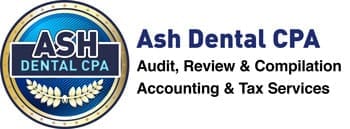Tax Advising for Dentists

Tax Advising for Dentists
Tax Advising for Dentists | Tax season offer several challenges to taxpayers. Dentists are no exception to that. However, working with a professional tax advisor can help you through the busy tax season issues.
Why you Should Consult a Dental CPA?
Dentists can hire an in-house accountant to do their tax returns. They can also use online tools to file their tax returns.
Unlike most peoples’ opinions, tax advisory is much more than accounting tasks. You’ll need expert advice at each stage of your business and tax planning.
Dental CPAs are specialists that work with dentists. They come with in-depth knowledge of taxes and business practices.
It means you can take advantage of their expertise in tax planning as well as business planning.
Let us discuss a few key points to elaborate on the importance of using a dental CPA that offers Tax Advising for Dentists.
Tax Advising for Dentists – Tax Saving Strategies
Each business comes with a unique setup. It means your tax plan could be different from others. Here are a few key areas of tax-saving strategies that can help you reduce the tax bill.
Plan Ahead
First, do not leave your tax planning to the last moment. If you couldn’t plan ahead of time, you’ll need some catching to do.
Most businesses need to pay estimated and employment taxes quarterly. It means you need to plan well to reduce your tax bill throughout the year. Hence, we can offer the best advice to you to plan before the busy tax season arrives.
Entity Structure
Each entity structure comes with its pros and cons. For example, a C Corporation offers the benefits of pass-through income with an established separate business entity. The owners pay taxes on dividends received too.
Choosing the right type of entity structure depends on your dental practice requirements. You may want to own it as a sole proprietor. Perhaps, a limited liability partnership suits your business if you have business partners. Professional Tax Advising for Dentists will help narrow your options.
Research and Development Credit
The research and development tax credit is often underused by dental practices. Depending on your dental practice’s apparatus, you may be eligible for the R&D tax credit for various activities.
Some of the available R&D credits for a dental practice may include:
- Developing new treatment plans
- Designing and fabrication of prosthetics
- Dental laboratory activities
- Oral surgery
Employee Retention Credit
The IRS allows certain businesses to take employee retention credit. If your business went through a rough patch during the pandemic, you can find this tax credit as a useful option now to minimize the tax bill.
It’s important to evaluate employee retention credit eligibility. Consult professional Tax Advising for Dentists so that you maximize the tax benefits of utilizing the employee retention credit.
Maximize Retirement Plan Benefits
You should choose a retirement plan that best suits your long-term financial goals. Many dentists choose the traditional 401(k).
You can also explore larger retirement contribution plans such as defined benefit pension plans, insurance captives, and premium financing options.
You’ll need to consider the cash position of your business before choosing the right type of retirement plan. Again, seeking professional advice can help you make the right decision here.
Pay Your Family Members
Like many other small businesses, you can use this option too. If you have a family member who can help you in your business activities, you can pay that person.
In other words, you can hire a family member as well. For instance, if a family member helps you in accounting tasks, you can pay that person to lower your tax bill.
Consider Your Depreciation and Amortization Strategies
Service businesses come with a larger proportion of intangible assets. It means you’ll need a delicate strategy to deduct amortization expenses. However, an experienced dental CPA can help you through the process.
You can also restructure the depreciation strategy for your business’s physical assets. More on this during your Tax Advising for Dentists meeting.
Adjust Your Expenses and Income
Prepaying expenses is a common practice. However, it does not work all the time. You may need to defer some income as well.
Contrarily, if you are expecting a large cash flow in the coming year, you may want to push for accounts receivable to avoid a larger tax slab next year.
Choosing the right method can affect your current and next year’s taxes. Thus, planning with the help of a professional tax advisor can reduce your tax burden and keep your business compliant with the IRS requirements at the same time.
Learn more about Tax Advising for Dentists with Ash Dental CPA. New clients are welcome.
